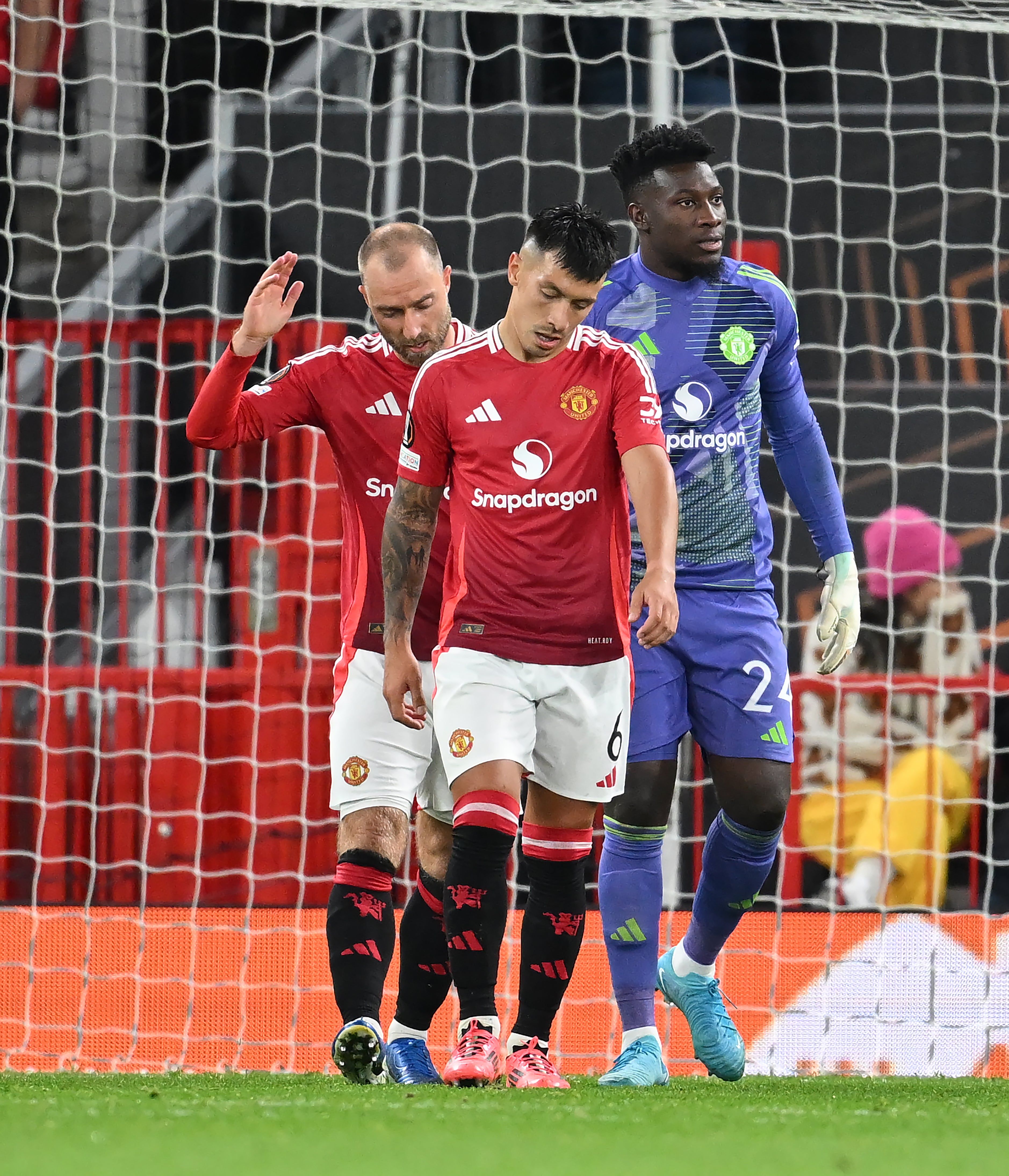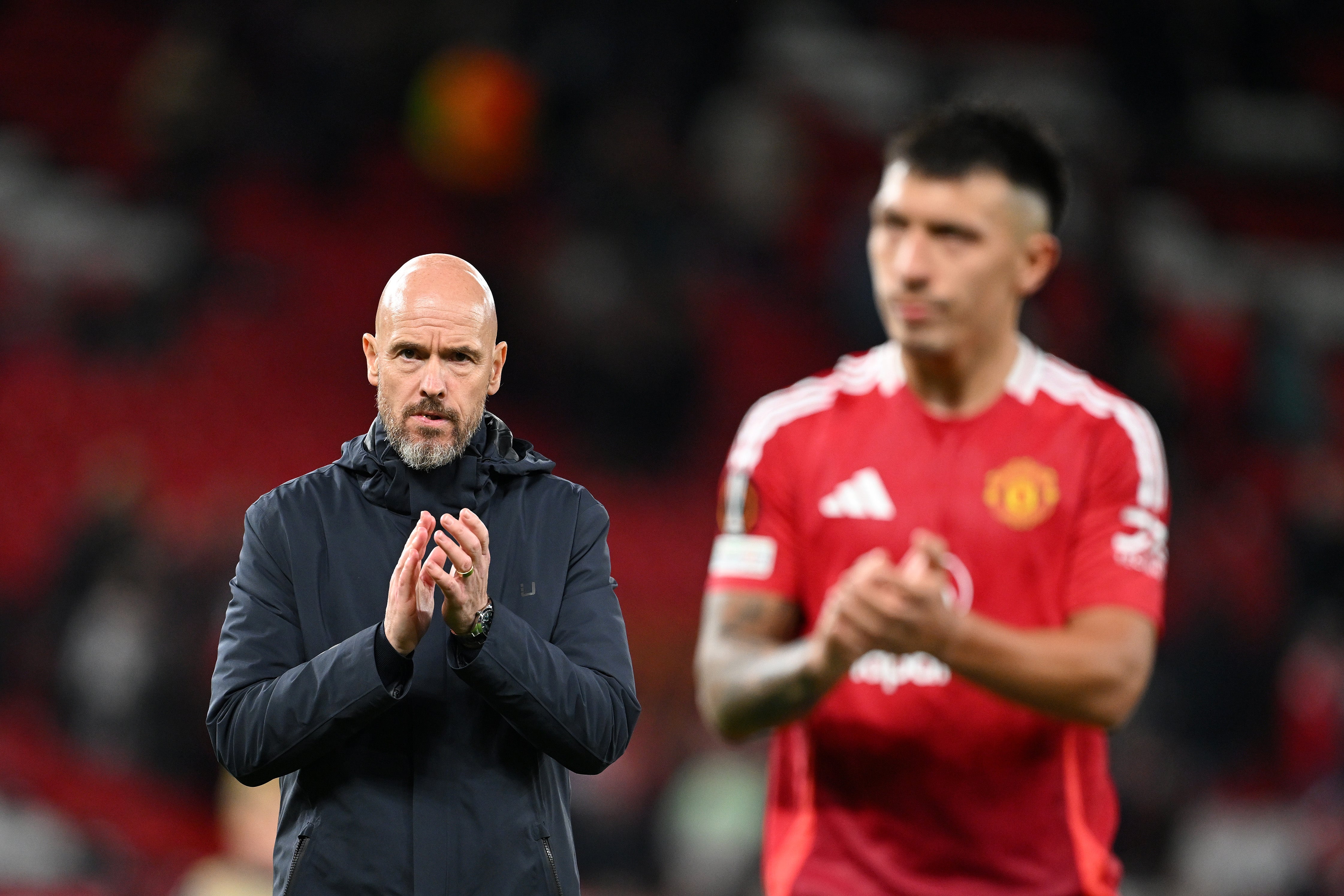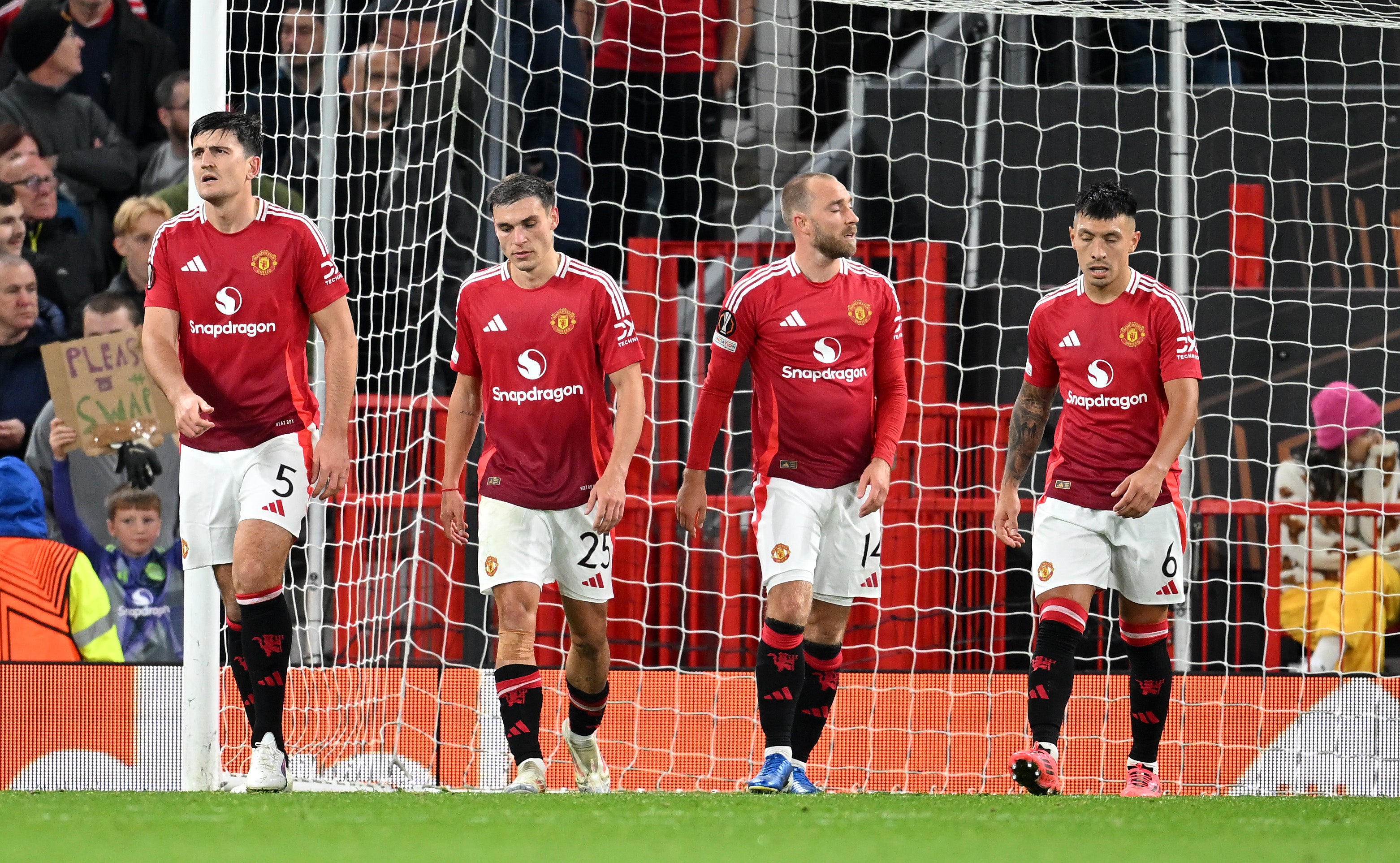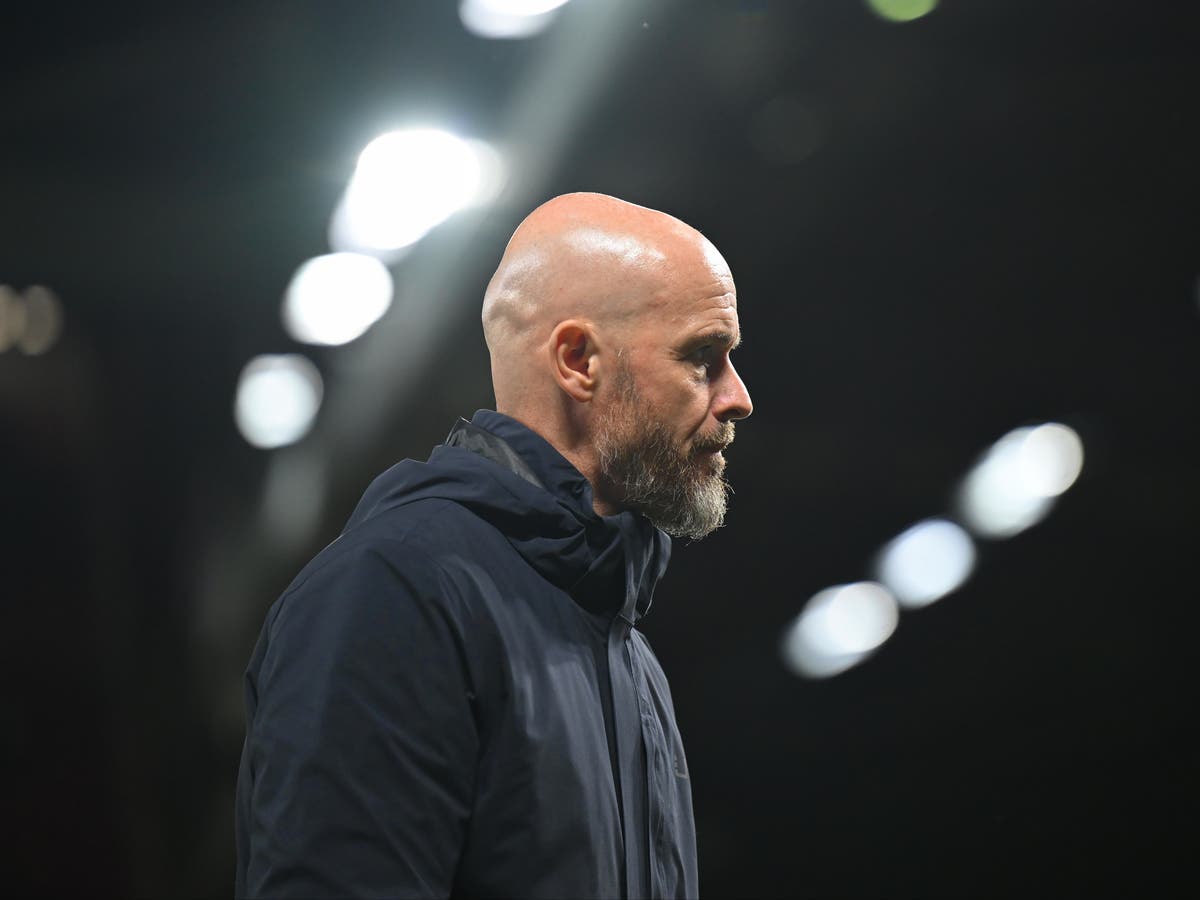It was in the summer of 2023 when Erik ten Hag declared he wanted Manchester United to be “the best transition team in the world”. If he has succeeded, it is probably not quite in the meaning he intended, as the Red Devils enter this weekend following a 1-1 draw against Twente.
His side conceded too many goals on the counter-attack last season, forever looking susceptible to the break. But United are specialists in transition in a different respect. In the third season of Ten Hag’s reign, after 122 games and he has spent more than £600m, they remain in transition.
They can seem forever mired there. It may be unfair to judge the Dutchman’s newest team after five league games, before the biggest summer signing Leny Yoro has even made his debut, but they are already six points off the lead in the Premier League already. A marquee match against Tottenham is also a mid-table clash, with the sides sitting in 11th and 10th. Lose and the temptation would be to suggest it will already be a 12th successive season without a true title challenge.
Most of that is not Ten Hag’s fault, of course. But the club’s new chief executive Omar Berrada has set the target of winning the title by 2028 to mark their 150th anniversary. Which would require United to exit transition, to trade their inconsistency for the kind of sustained excellence the true contenders display.
United showed signs of it in Ten Hag’s debut campaign, during a run of 40 games that produced just four defeats. Their last six results – two defeats, two wins, two draws – follow a season when their longest unbeaten run spanned five matches.
Ten Hag, nevertheless, feels United are heading in the right direction now. “I think we turned a corner and now we have to work with the squad,” he said. “That takes time and also I am impatient and I want to go straight forward but also we had success in the last two seasons.”

He tends to cite the two cups won in the last two years as proof of success. Yet Wednesday’s draw with FC Twente, a club with a fraction of United’s resources, was a clear reminder of his side’s frequent underachievement against mid-table teams that has been a prominent feature of the last 13 months.
Ten Hag’s latest £200m summer spending spree could engender hope of swift improvement. It has not arrived: so far he attributes that to a lack of goals and a clinical instinct. Ten Hag can nevertheless argue he is building with the long term in mind. To his credit, he has brought through the teenagers Kobbie Mainoo and Alejandro Garnacho. Recruitment has changed the profile of the squad. A host of senior players left in 2022, when the manager was appointed, followed by David de Gea in 2023; this summer saw United replace an older player with a younger one, in Yoro and Matthijs de Ligt for Raphael Varane, Manuel Ugarte for Scott McTominay and Joshua Zirkzee for Anthony Martial.

Admittedly, in Ten Hag’s reign, United have also made the choice to bring in Casemiro and Christian Eriksen, both now 32. Such deals can mean they sometimes seem in perpetual transition, invariably looking to move on from senior figures. Recruiting the emerging, though, can require patience.
“You have to assess the situation and still we are a work in progress,” he added. “We have made the choice to sign young players, like last year [Rasmus] Hojlund, like this year Zirkzee and Leny Yoro, players who we believe in in this moment and also for the future.”
But it does prompt the question of when the future arrives; of when Ten Hag’s United should be judged. By any measure, £600m represents an extraordinary outlay. The wisdom of the last batch of signings remains to be determined. But the first tranche included the £86m misfit Antony and the ageing Casemiro, neither in the team now. For the Brazilian, like many another over the last decade, an entire United career could come with them in transition.
Ten Hag has invariably recognised that a United manager has to aim for rather more. “We are ambitious and we want to be as high as possible and win every game,” he said. Yet apart from a heady spell in winter of his first year at the club, that has sat uneasily with a reality that is very different.

His predecessors have been sustained by evidence of evolution in the past and spells when United could legitimately be called works in progress. Yet whenever they reached a point where they were expected to advance again, they instead regressed. Now they are looking for signs they will reach the desired destination.
His most celebrated predecessor, however, became an advertisement for patience, an indication a seemingly endless time in transition can take them on the road to glory. The most infamously incorrect banner in United’s history read: “Three years of excuses and it’s still crap, ta ra Fergie”.
Sir Alex Ferguson proved the exception to many a rule, though. And if it is scarcely a fair appraisal of Ten Hag’s reign to suggest it has consisted of two years of excuses or that it is all crap, the longer United linger in transition, the more urgent the question is of whether they can trade mediocrity for magnificence under him.

